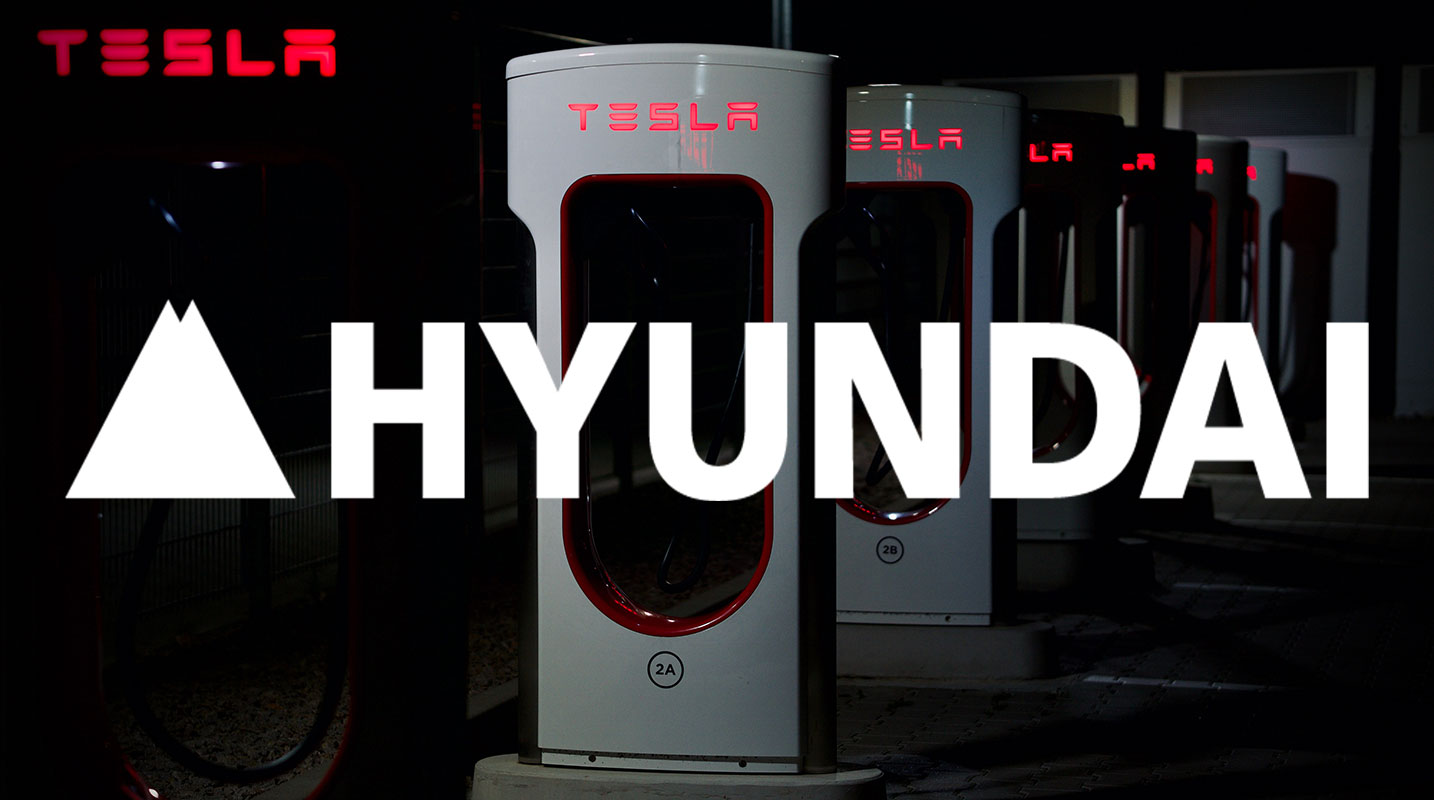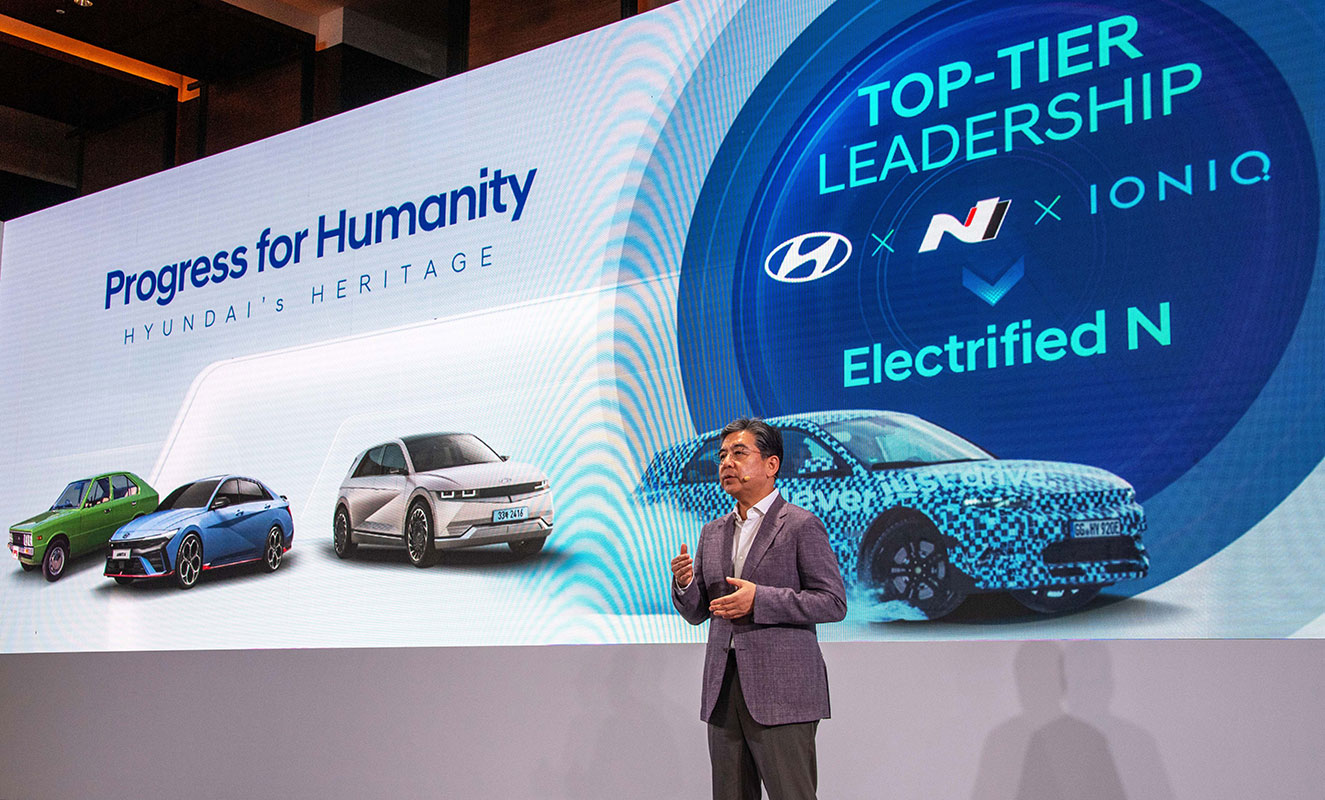Hyundai, a prominent South Korean automaker, is poised to follow in the footsteps of Ford, GM, and Rivian by considering the adoption of Tesla’s electric vehicle (EV) charging standard for the North American market. Hyundai’s decision to adopt Tesla’s North American Charging Standard (NACS) depends on customer interest, and they have reservations about it. However, Hyundai recognizes the importance of Tesla’s charging infrastructure and its impact on the EV market. By aligning with NACS, Hyundai aims to offer a seamless charging experience, allowing customers to access Tesla’s established Supercharger network.

Hyundai’s Consideration of Tesla Charging Standard for North America
During the recent Hyundai Investor Day, the company unveiled its next-generation EV platform, and Hyundai’s President and CEO, Jaehoon Chang, discussed the potential adoption of Tesla’s charging standard. As reported by CNBC, Chang highlighted a crucial issue: Tesla’s Superchargers do not currently provide higher charging rates supported by Hyundai’s EV platform.
Hyundai’s EV Charging Architecture and Tesla’s NACS Compatibility
Hyundai and its subsidiary, Kia, have developed EVs with 800-volt architectures capable of accepting fast-charging rates up to 350kW (although existing models like the Hyundai Ioniq 5 and Kia EV6 do not reach those speeds). In contrast, Tesla’s vehicle architectures operate at 400V or lower and can fast-charge at a maximum rate of 250kW.
Hyundai is working on its next-generation Integrated Modular Architecture (IMA) platform to address this challenge. It will be the foundation for 13 new vehicles across Hyundai, Kia, and Genesis brands. IMA aims to replace the existing E-GMP platform and introduce design efficiencies that enable the flexible integration of parts across vehicles of various sizes, ranging from small sedans to large SUVs.
Hyundai’s Next-Generation Platform: Integrated Modular Architecture (IMA)
Moreover, IMA will introduce a new software ecosystem characterized by Hyundai as an “open operating system.” This software foundation will facilitate the development of an app ecosystem, allowing the automaker to enhance the user experience and offer innovative digital solutions.
Hyundai aims to sell 2 million EVs by 2030, requiring the promotion of their current lineup while preparing for new IMA-based models. This decision includes potential support for Tesla NACS, especially for a pickup truck. Due to the CCS requirement in Europe, Hyundai is not concerned about NACS compatibility. However, if a Hyundai vehicle appears in the US, it will be intriguing to see if it stops at a Supercharger.
Hyundai’s Vision: Selling 2 Million EVs by 2030

Hyundai is considering adopting Tesla’s North American Charging Standard for its EVs in North America; even though Hyundai’s 800-volt architecture’s faster-charging rates compared to Tesla’s current vehicles, their upcoming Integrated Modular Architecture (IMA) platform aims to bridge this gap. IMA will bring new software capabilities and an open operating system to facilitate an app ecosystem. Including Tesla NACS support in Hyundai’s future models will be pivotal in achieving their ambitious goal of selling 2 million EVs by 2030.
FAQs
What is the North American Charging Standard (NACS)?
The North American Charging Standard (NACS) is Tesla’s EV charging standard designed for the North American market. It specifies the charging infrastructure and protocols used by Tesla vehicles in that region.
How does Hyundai’s EV charging architecture differ from Tesla’s?
Hyundai’s EVs utilize an 800-volt architecture capable of fast-charging rates up to 350kW. On the other hand, Tesla’s vehicles operate at 400V or lower and can fast-charge at a maximum speed of 250kW.
What is Hyundai’s Integrated Modular Architecture (IMA)?
Hyundai’s Integrated Modular Architecture (IMA) is the next-generation EV platform underpinning 13 new vehicles across Hyundai, Kia, and Genesis brands. It offers design efficiencies and flexibility in parts integration across different vehicle sizes.
Will Hyundai’s adoption of Tesla NACS affect its European models?
No, Hyundai won’t need to worry about Tesla NACS compatibility in Europe because Tesla already supports the Combined Charging System (CCS) in that region.
How many EVs does Hyundai plan to sell by 2030?
Hyundai has set a target of selling 2 million EVs by 2030, highlighting its commitment to the electric vehicle market.
Wrap Up
Hyundai’s potential adoption of Tesla’s North American Charging Standard (NACS) for its EVs in North America is a significant development in the EV industry. Hyundai’s EV lineup has faster-charging rates with its 800-volt architecture. However, compatibility issues with Tesla’s Superchargers must be addressed, which lack support for Hyundai’s higher charging rates.
Hyundai is developing the Integrated Modular Architecture (IMA) as its next-gen platform to address the challenge. IMA will introduce design efficiencies and a new software ecosystem. It aims to offer flexible parts for vehicles of various sizes and an open operating system to foster app development, improving the user experience.

Selva Ganesh is the Chief Editor of this Blog. He is a Computer Science Engineer, An experienced Android Developer, Professional Blogger with 8+ years in the field. He completed courses about Google News Initiative. He runs Android Infotech which offers Problem Solving Articles around the globe.




Leave a Reply